Meet Our Roadhogs Pig Specialists
We continue our series of interviews with our Roadhogs Pig Specialists and discuss the benefits of joining Roadhogs as a permanent member of the relief team, learning new pig industry systems and how to get into the industry.
Up next is an interview with our Senior Pig Specialist – Mark Laycock!

RH: As a pig specialist, talk us through a typical day on a unit/farm, how does it start and what does it involve?
ML: Usually, unit teams will start by feeding and checking the animals. Straw based units are checked while they are mucked out and re-strawed. Any pigs that need treating are dealt with followed by routine vaccinations along with AI, pig movement, fostering, teeth and tailing and pressure washing.

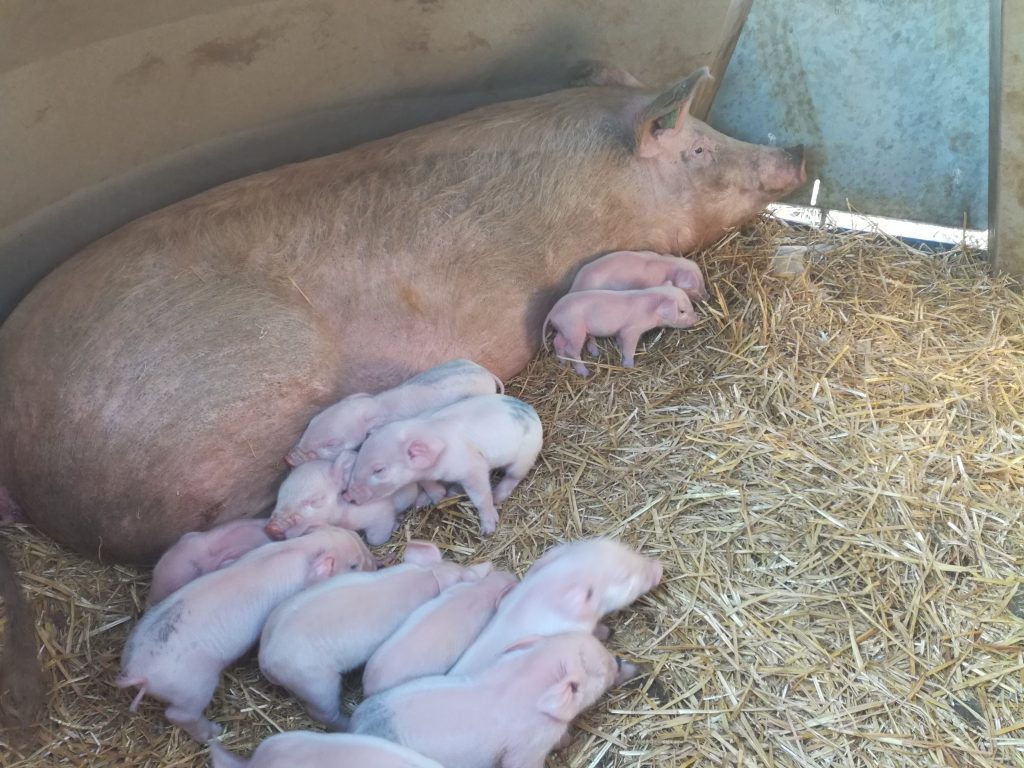
RH: When did you discover you wanted to work with pigs and how did you start out in pig farming?
ML: I went to Seale Hayne agricultural College where I did an HND in general agriculture. Majority of the course focused on arable, dairy, beef, sheep etc and we only briefly touched on pig production. We learnt about the physiology of the pig and did a bit on nutrition – nothing in-depth. In my sandwich year I decided to work on a PIC unit near Buckinghamshire. While I was there, I decided that pigs were great animals. I learnt a lot in 9 months by talking to the members of the team. I also bought books relating to pig production. So, after 37 years working with pigs, indoors and outdoors, what I have learnt has come from on-farm experience and studying the subject in my own time. I am still learning and have learnt a lot since joining Roadhogs 3 years ago; even a few experiences of how not to do it!
RH: What kind of qualifications would you say a person interested in entering the UK pig industry might need? Are they necessary?
ML: I did not have any qualifications per se in pig production. I have managed units, been an agister with BQP for 3 years, before buying my own farm in France where I had 200 outdoor pigs and 150 sheep for 8 years before brucellosis forced us to sell. Hard work and some luck got us there. If you can do a course related to just pig production, I would advise anyone to do it. Any knowledge gleaned is useful, but there is nothing like on farm experience. An apprenticeship would be ideal.

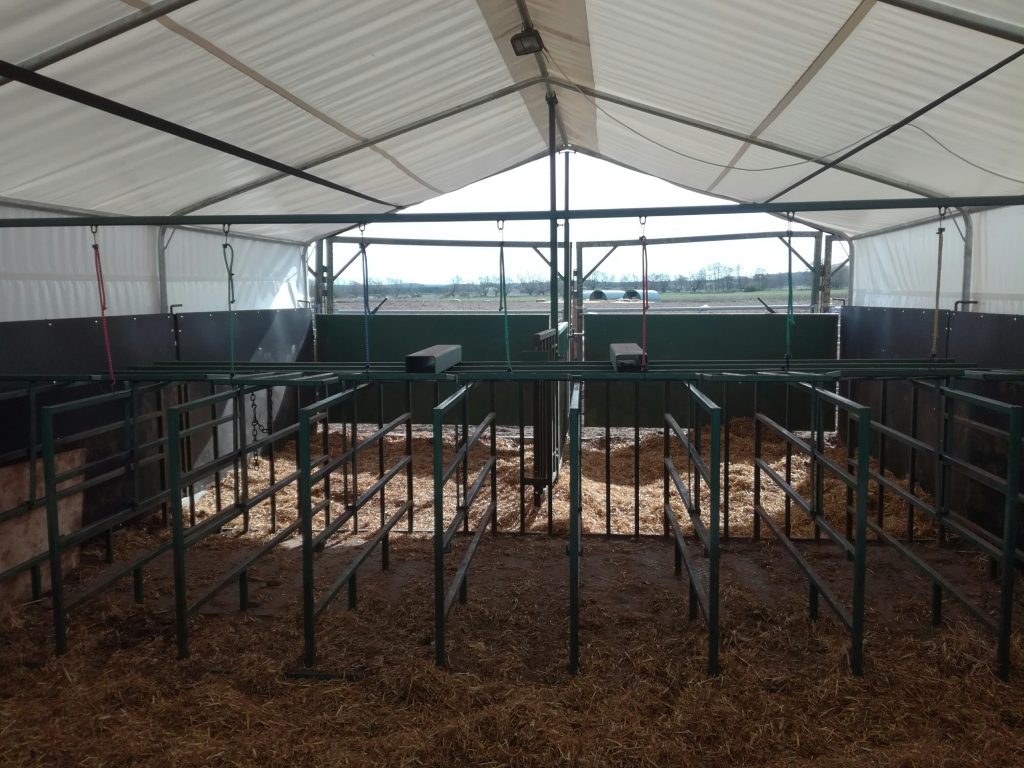
For a novice, you would learn a lot by working for Roadhogs where you would see different systems and different management styles and you could learn a lot from some very knowledgeable people out there, like me! ?
RH: What advice would you give to someone interested in working with pigs?
ML: You have like the animal that you are working with and want to do the best that you can for it. It is more of a vocation than it is about making a lot of money. There are possibilities of making money if you go into business for yourself. You have to be prepared to work long hours and to get wet and dirty (winter outdoor units; pressure washing indoors). If you are an employee and you are unhappy with the unit; or you want to move up the ladder, don’t be afraid to move! It is an employee’s market at the moment. The pig industry is lacking in people at the moment and there are opportunities for motivated and dedicated pig stockpeople. If you have experience and want to go into business for yourself with some back up, there are some big experienced organisations that will help you, like BQP. I managed a BQP unit for 5 years, then became one of their agisters. They were great! They gave me all the backup that you could wish for.

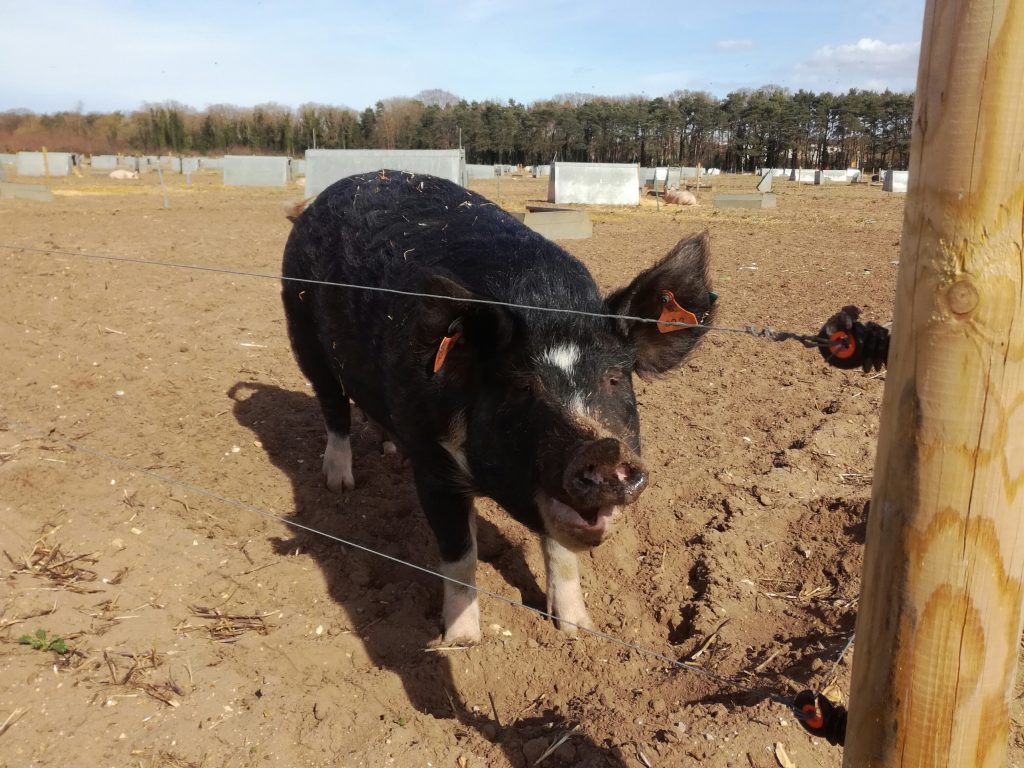
RH: What is it about pigs that you like?
ML: As Winston Churchill once said; The camel looks down its nose at you, the dog is subservient to you, but the pig looks you in the eye and considers itself equal to you. That’s what I like about the pig. They are real characters. In fact, they are more equal than us and generally humour us.
RH: What appeals to the relief side of working in the pig industry?
ML: I enjoy the flexibility that it gives me. On the whole I enjoy seeing different systems and have learnt a few things. I have seen different parts of the UK that I would not have otherwise seen. I have met some characters along the way too. One or two that I am still in touch with. Even one or two units that have taken some of my suggestions that have improved some areas of their operations! There have been some good youngsters too who have been interested inwhat I have to say, and not only about pigs!☺

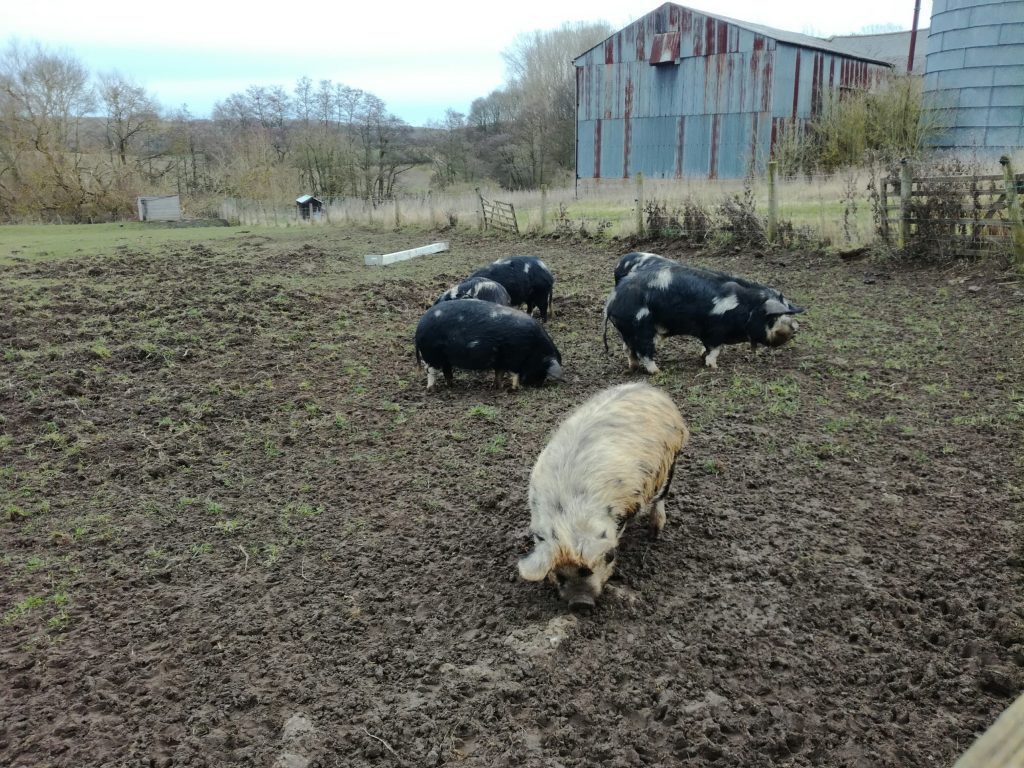
RH: How important is animal welfare to the British farming industry?
ML: Animal welfare is hugely important not only for the image of the Industry, but also to the animal. If you look after it, it will also look after you! It is not just a question of profit, but I think as pig stock people we have an obligation to look after the animals that are on our units.
Up until recently, the general welfare of animals in the British Pig Industry has been second to none, but over the years I have become aware that some units have grown bigger and bigger, and I wonder if the welfare of some of the animals is what it should be. On most British units, the answer is yes! However, some units that are short staffed and are struggling with attention to detail, so my question is, are standards slipping?
RH: And when not working, what do you like to when you have some time off?
ML: I enjoy visiting old castles and abbeys. I also like walking and hiking.

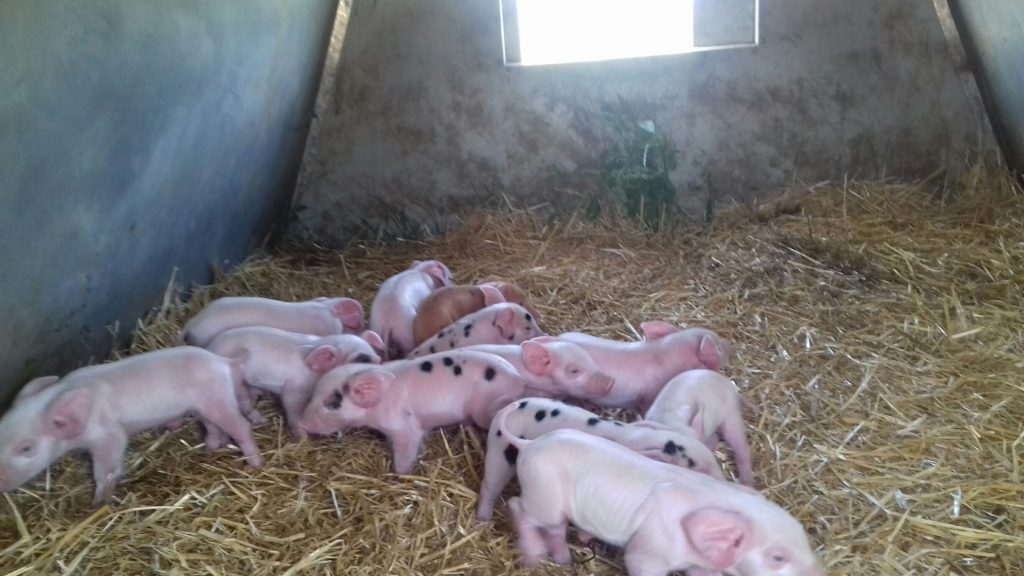
RH: Can you tell us any funny stories of things that have happened in your experience with pigs, so far?
ML: I was working on an indoor unit years ago where the sows were naturally served. The head of the dry sows had been there for years and knew the boars very well. Anyway, one Saturday afternoon, it was his turn to do the afternoon check and feed farrowing sows. We had both been to the pub for a lunchtime drink and I said that I would help. So, I went to feed the farrowing sows while he went to check the weaners and fatteners and service shed. When I had finished the farrowing sows, I went to look for him and found him asleep in one of the boar pens with his favourite boar. The boar was lying on his side softly snoring with Mike lying on his back using the boar’s flank as a pillow, snoring like a trooper. When I opened the gate, the boar opened one eye, looked at me, sighed and closed his eye again. It was as if this was a common occurrence, as it was. It was funny to see. The Saturday siesta!
RH: And finally, can you tell us why you joined the Roadhogs pig specialists relief team?
ML: I joined the Roadhogs team as the idea of moving from farm to farm appealed to me. My family and I live in France, and the flexibility of this work allows me to go back whenever I want. I like to see how different units operate and I am always learning something new and meeting different characters which keeps up my level of interest. Quite frankly, the idea of having a permanent job on the same farm for years and years is scary. I think I would get so bored of the same old, same old. I get to see parts of the UK that I otherwise not see.
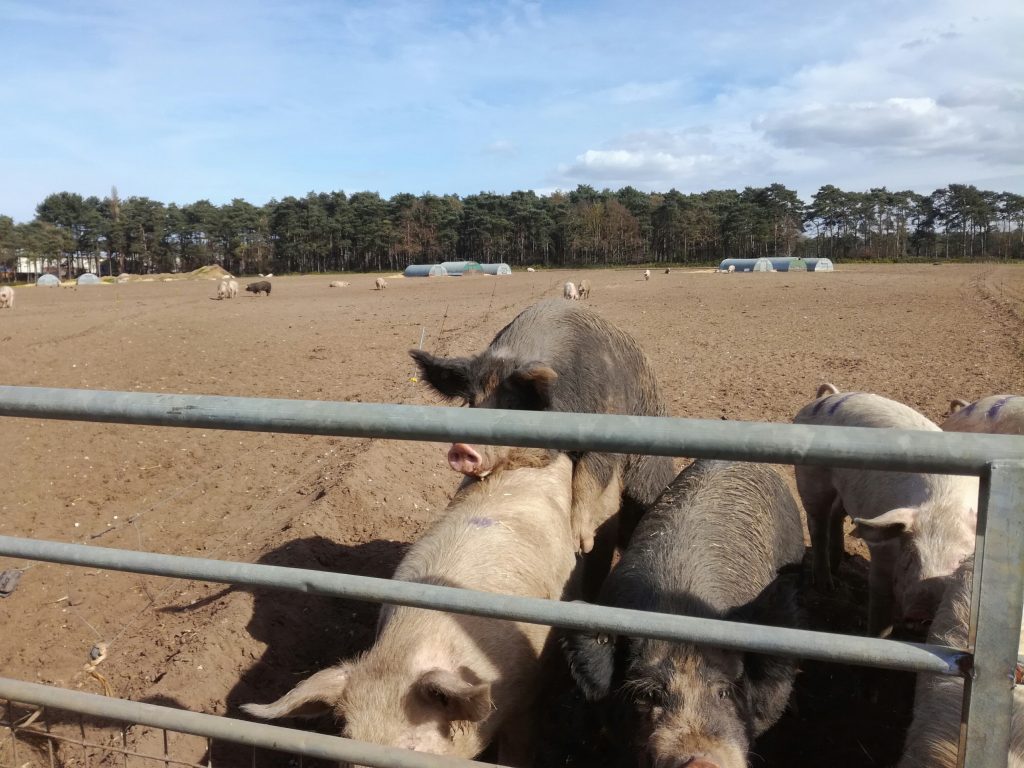
I find Liz and her team very organised and professional. Let’s not forget John Roads and his team that started this very useful service for the UK pig industry.
I always have work in front of me. I find that Liz and her team care and value their employees and are always on hand to help if there are any problems; professional or personal.
I would recommend working for Roadhogs if you want to gain experience in the pig industry with a team that will back you up. The renumeration package is very good and I have been able to save quite a bit.
If you are interested in becoming one of our relief staff pig specialists or are keen on hearing more about our permanent roles, please get in touch!

